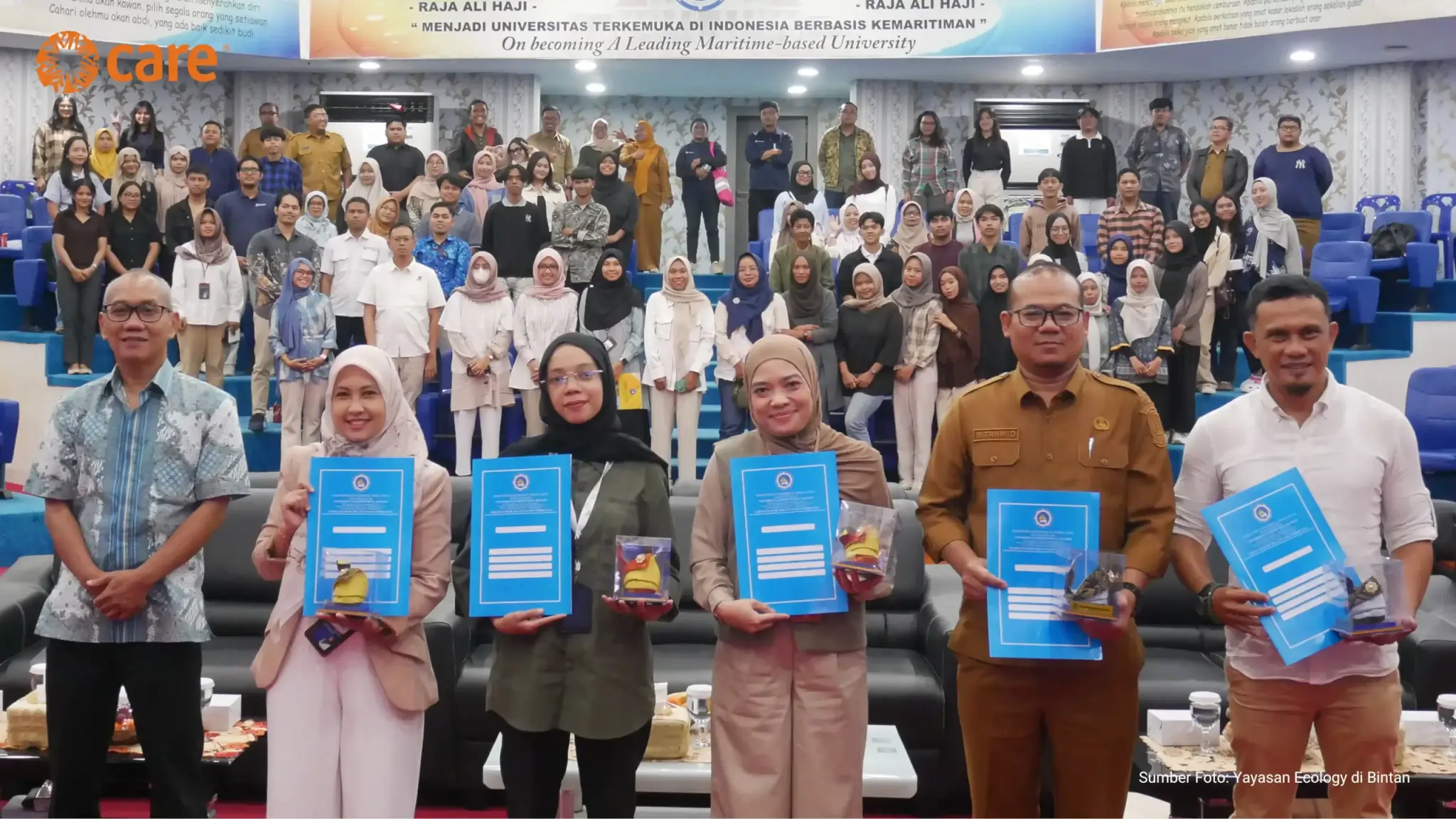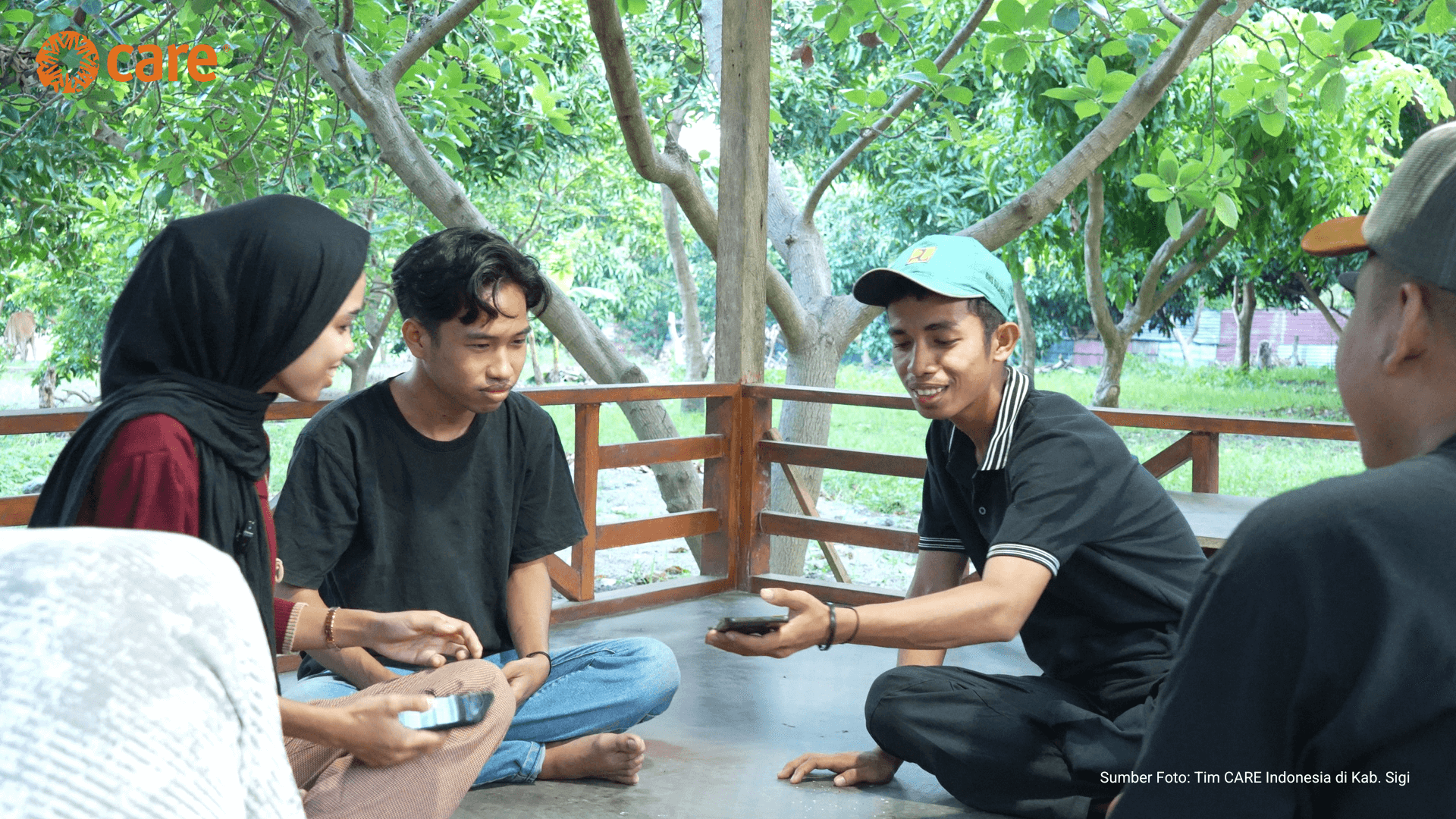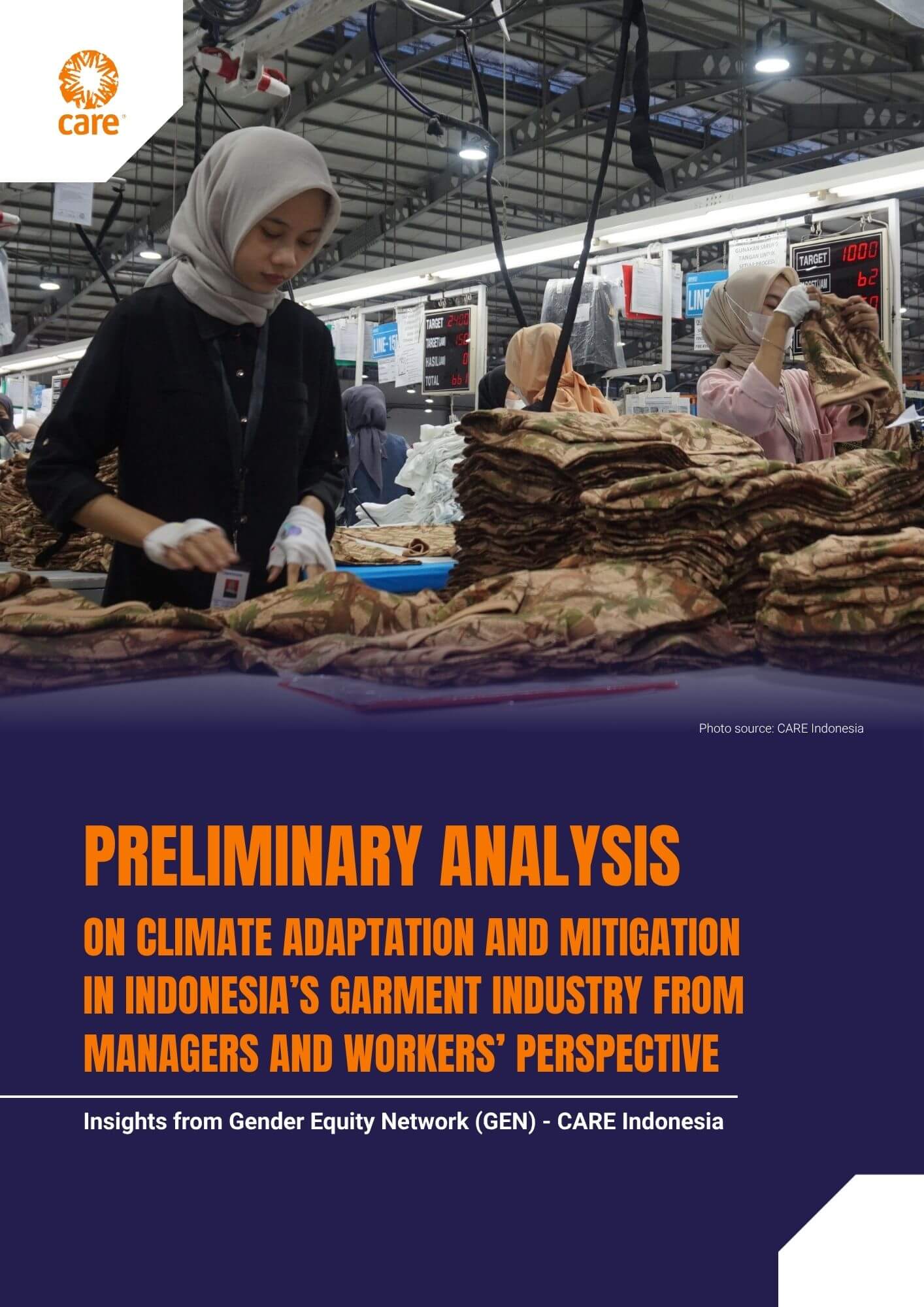Small waves chase each other along the shore of Sarawet Village, West Likupang Subdistrict, North Sulawesi. Amid the gentle roar of the sea, Wisye Sambangu prepares to paddle her canoe toward the mangrove planting area. She does this to care for the mangrove forest that provides habitat for crabs and fish, her primary source of income. Together with eight other women, Wisye actively maintains the mangroves along the coast while managing a small business group they established independently.
“We want to increase our income while ensuring the sea remains sustainable. That’s why we joined the Women-led Economic Business Group (KUEP) to learn about financial management and explore new livelihood opportunities,” Wisye said with a warm smile.
According to Wisye, the support she received through KUEP has given her and other members opportunities to learn, organize, and become more empowered. Since joining KUEP Rhizopora, Wisye’s daily activities have expanded beyond household chores she has become an important part of efforts to protect nature while also strengthening her family’s economy.
Before joining the group, women in her village often planted mangroves voluntarily without financial assistance. With renewed enthusiasm, KUEP Rhizopora has now begun to develop a savings and loan system. The members agreed to pool their resources, collecting IDR 4 million as an initial capital fund while awaiting additional support from KUEP proof that independence is born from determination, not merely external aid.
Wisye believes that the healthier the mangrove ecosystem, the more abundant the marine resources become. For her, planting mangroves is not only about protecting nature it’s about planting hope: for a sustainable sea, a prosperous family, and a more resilient future for coastal women.
“We are women fishers. If the mangroves are damaged, crabs and fish will become harder to find,” she said.
A similar spirit is shared by Yeni Ahad, Wisye’s colleague in KUEP Rhizopora. Yeni shared that their group now owns a boat and crab-catching tools provided through the program’s support. They use the boat to collect mangrove seedlings, transport them for planting, and go fishing and crabbing near the mangrove ecosystem.
“In the past, we had to borrow other people’s boats. Now we don’t have to, thanks to the support we’ve received. This assistance has made our work much easier because we can independently transport mangrove seedlings and go fishing and crabbing. We hope that with the new equipment and boat, our catch will increase. The group’s catch will later be sold to local buyers and sent to Manado City,” Yeni said proudly.
Renee Picasso Manopo, Climate Resilience and Humanitarian Portfolio Manager of CARE Indonesia, explained that this women’s coastal empowerment and mangrove protection initiative is part of the joint efforts of CARE Indonesia and Yayasan Bumi Tangguh, supported by the Asian Venture Philanthropy Network (AVPN), to strengthen community resilience in North Minahasa’s coastal areas.
“Our target is to plant 50,000 mangrove seedlings across three villages Palaes, Sarawet, and Minaesa to restore coastal ecosystems and improve community welfare. By engaging and strengthening women’s groups, we hope this program will not only enhance women’s roles in mangrove conservation but also improve their livelihoods and reduce their workload so they can contribute to their household income from activities close to home,” Renee concluded.
Writer: Kukuh A. Tohari
Editor: Swiny Adestika











